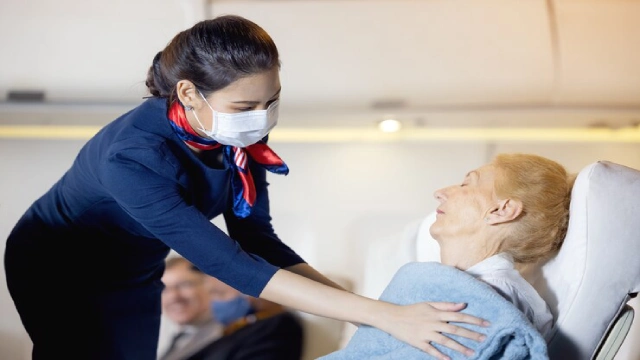Do you have any serious medical conditions and are afraid to travel via air? And thinking about how to fly WestJet with medical conditions? If yes, then this blog is absolutely for you.
In this blog, you will get all the answers to your queries. Here, I will tell you about ways through which you can accomplish your travel journey. Apart from that, I will also guide you with some precautions that you must take before boarding your flight. So, without wasting any other second, let’s take a look at the article below:
How to Get Medical Clearance?
- If you have active infections then you are required to submit the medical form.
- If you have any blood condition, where you experience blood clotting issues and require constant monitoring.
- If you have a broken bone or fracture or cast limb within 48 hours of flight departure.
- In case, if you have active cancer treatment.
- If you have any cognitive, behavioral, or psychological conditions.
- In case, you have any ear, throat, or nose disorders.
- If you have had any nasal surgery within 10 days of flight departure.
- If you had any jaw surgery that too within a week of departure.
- In case, you had an abdominal surgery within 14 days or had bleeding within 10 days of the scheduled departure time.
- If you are traveling with any infant who is a premature kid, or less than 7 days old.
- If you have any neurological conditions such as head trauma in less than 48 hours, seizures within a month, or stroke within 14 days of departure.
How to Fly WestJet with Medical Conditions?
- Fill out the WestJet Medical Information Form. This form can be found on the WestJet website. The form must be completed by a doctor and submitted to WestJet at least 14 days prior to travel.
- Bring your medications on board the plane. Medications must be in their original containers and labeled with your name.
- Check any equipment you need with WestJet at least 48 hours prior to travel. This includes wheelchairs, oxygen tanks, and CPAP machines.
- Request accommodations at least 48 hours prior to travel. WestJet can provide accommodations for passengers with medical conditions, such as an aisle seat or a seat with extra legroom.
Note: It is advisable to do a thorough body check-up before you proceed with WestJet Check-in Procedure.
When Do I Have to Submit the Medical Information Form?
Medical Information Form: Required for US Travel?
Medical Equipment at Airports: Compliance and Screening Procedures
- If you are carrying Automated external defibrillators (AED), Blood sugar monitors, Continuous positive airway pressure (CPAP), External or transcutaneous nerve stimulators (i.e. TENS machine), or Heart rate monitors then you have to submit these types of equipment for security checking before you take these on board.
- Security checking is also required for Nebulizers, Neurostimulators, or Portable oxygen concentrators (POC).
- If you are going to carry portable Suction devices and aspirators, Syringe/feeding pumps, or Ventilators on board then before that you have to complete the security procedure.
Note: Exceptions are there. If you have hearing aids, watches, or pacemakers, then you do not need any approval from the airline or airport authority.
Understanding Restrictions on Medical Devices During Travel
| Medical Items | Carry-on Baggage | Checked Baggage |
| Vaporizers | Allowed | Not-Allowed |
| Non-powered Wheelchairs | Allowed | Not-Allowed |
| Wheelchairs, powered by lithium batteries | Allowed | Not-Allowed |
| Compressed air/oxygen tanks for medical use | Not-Allowed | Not-Allowed |
Additional Tips to Travel Safe with Medical Conditions
- Let your airline know about your condition in advance. So that they can help you with the accommodations you need.
- Put a medical kit in your carry-on baggage. In the kit, you must pack all the medicines that you will need during the flight.
- Stay hydrated and eat regular meals to avoid any unforeseen health conditions.
- Get up and move around every few hours. To prevent blood clots.
- Before flying, make sure to consult with your doctor. If they sense anything serious then, they will provide you with the safety measures.















